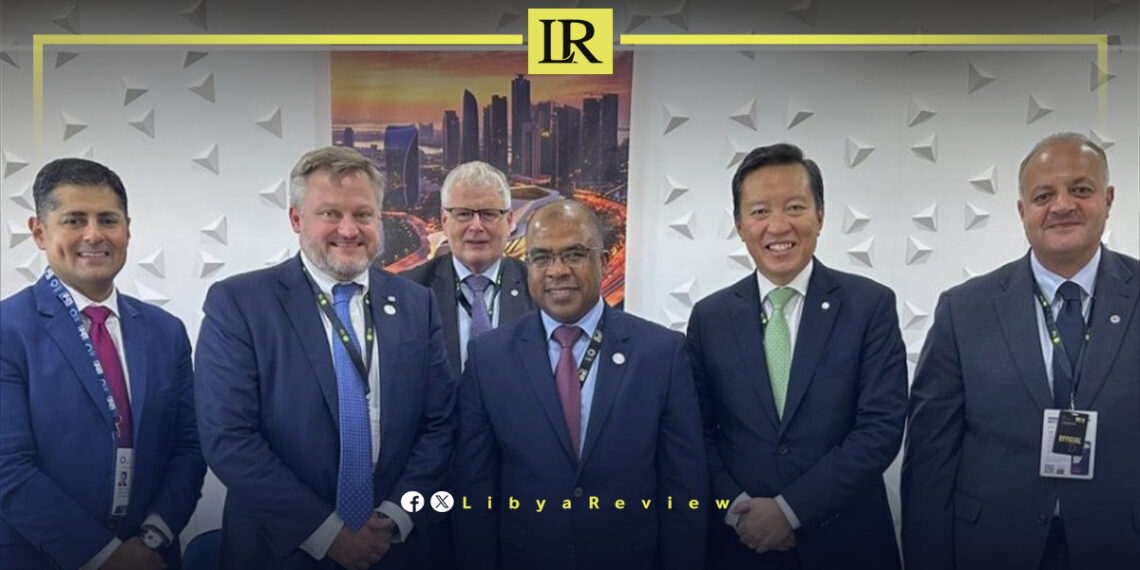Khalifa Abdul Sadiq, the appointed Oil Minister for Libya’s Government of National Unity, met with a delegation from British Petroleum (BP) during the sideline meetings of the ADIPEC conference held in the United Arab Emirates.
The Oil Ministry’s media office reported that the meeting focused on BP’s operations in Libya and upcoming drilling programs in untapped regions.
Discussions also covered investment opportunities in Libya’s oil and gas sector. BP expressed a desire to expand its investment portfolio and support the institution’s policies, aiming for mutual benefits from the available opportunities to develop the oil and gas sector in Libya.
Libya has been in chaos since a NATO-backed uprising toppled longtime leader Muammar Gaddafi in 2011. The county has for years been split between rival administrations.
Libya’s economy, heavily reliant on oil, has suffered due to the ongoing conflict. The instability has led to fluctuations in oil production and prices, impacting the global oil market and Libya’s economy.
The conflict has led to a significant humanitarian crisis in Libya, with thousands of people killed, and many more displaced. Migrants and refugees using Libya as a transit point to Europe have also faced dire conditions.
The planned elections for December 2021 were delayed due to disagreements over election laws and the eligibility of certain candidates. This delay has raised concerns about the feasibility of a peaceful political transition.
Despite the ceasefire, security remains a significant concern with sporadic fighting and the presence of mercenaries and foreign fighters. The unification of the military and the removal of foreign forces are crucial challenges.


